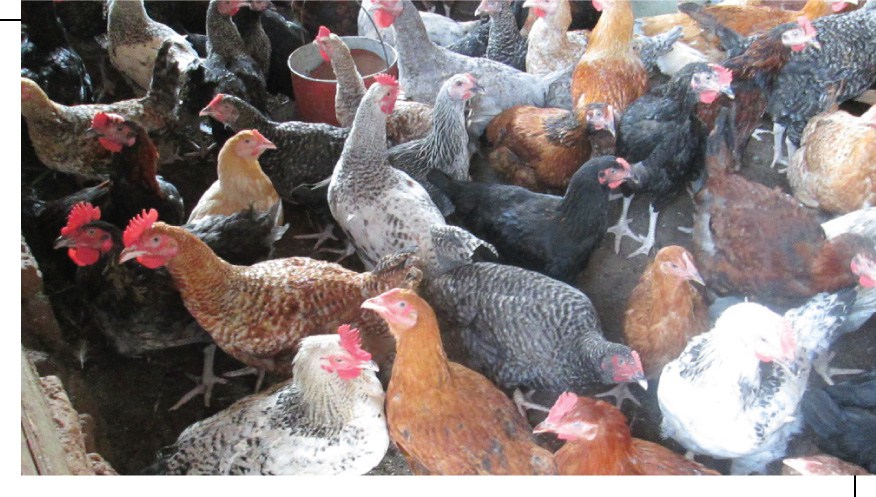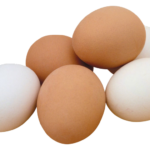Kienyeji chicken have their own basic needs just as humans which need to be provided adequately and consistently to enable them live a healthy life and profit the farmer. While another farmer may look very clean with very happy flock of chicken, every farmer must know that everything that shines has been made to be so and every farmer must make every little effort depending on their unique circumstances to bring the best out of their flock.
In the pursuit of this care and maintenance, there are things a farmer will have to do daily, others will be done monthly yet others can be done only once a year or simply, seasonally.
Things to do Daily
One of the most important tasks that forms the basic foundation of chicken rearing is the provision of water and feed. The farmer must ensure that chicken are given generous quantities of clean water in very clean containers or drinkers. Inadequate supply of water to chicken can lead to dehydration and the onset of many illnesses. Since most of what chicken eat is also dry matter, water helps in facilitating digestion. In a nutshell each day, make sure all the feeders and drinkers are cleaned and supplied with fresh water and feed. It is also prudent to recognize that we should not under feed or over feed chicken (See guidelines on feeds and feeding in a separate article in the blog).
Another activity that must be performed daily is checking the chicken flock to ascertain that they are healthy. Chicken are normally very vibrant when healthy. Any sign of weakness or suspicious inactivity should be reported to a veterinarian soonest possible for investigation.
In cases where there are layers in the farm, eggs should be collected daily, cleaned (if necessary) and stored appropriately. In some cases the eggs may be soiled by the surrounding, dust or any other substances in the chicken coup. It is advisable to use warm water to gentle remove the dirt. Do not scrub eggs as this may interfere with an outer membrane very vital for the development of the egg. Finally, store eggs with the pointed side facing down.
At the end of each day, and particularly if you have free rangers, check all your flock again for any signs of weakness or inactivity and also counting them if possible to find out if any could be missing. For those with large flocks, check for any dead ones or sick ones among the multitude and isolate them in a sick bay which every farmers should ideally have. In the sick bay they are attended to by a veterinarian and recovered ones brought back to the flock with the approval of the doctor.
Monthly Activities
Every farmer should make an effort to remove the chicken droppings (faeces) from the chicken house at least once every month. This helps in curbing the breeding ground for other pests and diseases which can essentially wipe out the entire flock. Clean out all droppings and collect in a nearby pit either for sale to other crop farmers or for home use. Chicken manure is very rich and can support the growth of several other crops within the farm or can be a new revenue stream in the farm from sale to other farmers. In Kenya a sack of chicken manure goes for an average of between Khs. 370 and Kshs. 400.
In most chicken houses, farmers also may place a bed of saw dust or other matter that provides warmth to the chicken in addition to collecting the droppings. This bedding should ideally be replaced on a monthly basis to provide a clean environment for healthy living. Leaving these beddings for prolonged periods of time may lead to the onset of ammonia and the emergence of serious respiratory ailments.
Yearly Activities
Once a year or twice a year, it is desirable to carry out thorough cleaning of the chicken house, removing all beddings, droppings, thorough cleaning of the laying nests, removal of dust on wire meshes and other surfaces and if possible mild disinfections. You can ask your veterinarian about mild chemicals that can be used to disinfect the chicken house. This ‘total overhaul’ will breathe new life into the chicken house giving it a new fresh look and the chicken a new environment.
Occasional or Seasonal activities
Farmers should be ready for those activities that they need to perform only occasionally in the chicken house or in farming. There are cases where the weather changes variously from cold to hot. While chicken slowly adapt their system to cold weather, it is prudent to help them weather the storm. A sheet of plastic or any other appropriate material like warm sacks should be used to cover the open spaces when it is extremely cold which may be some month within the year. The same will apply during the hot season when they chicken will require freshness and hence proper ventilation.
Find more information on our improved kienyeji chicken farming manual.

